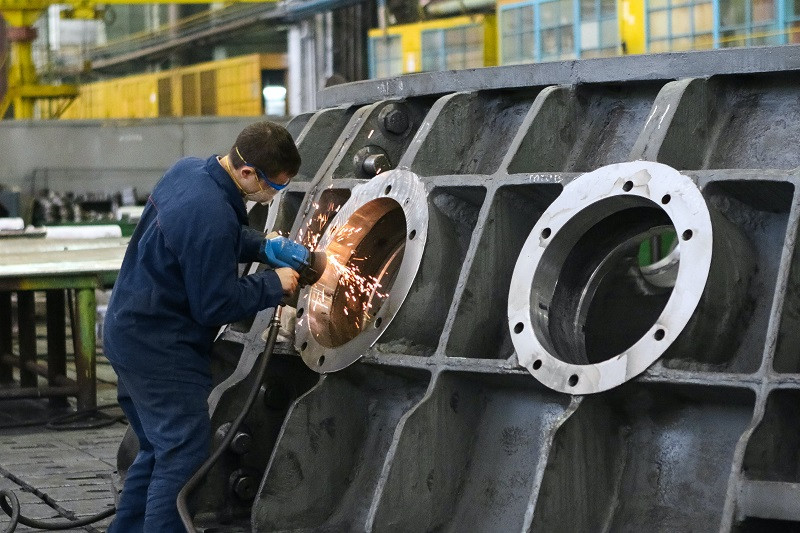
Anxiety at work is part of the daily lives of millions of workers. This is not surprising, given that the simple fact of aspiring to goals of efficiency and productivity predisposes us to want to avoid “resting on our laurels”, which is why, in general, the professional context keeps us mentally active for many hours at a time. the week, for better and for worse.
It’s true that sometimes those anxiety levels aren’t high enough to be a problem. For some people, it can even be a source of motivation. However, in other situations, it does become an element of wear and tear on physical and mental health, especially if it remains at high levels for several days in a row or even for weeks.
In this article We will see what the main types of anxiety at work are, so that it is easy to recognize their characteristics and detect them. in our daily lives.
What is anxiety?
Although anxiety is usually linked to experiencing discomfort (at least for the time it lasts), it is neither a psychopathology nor a problem that should be eliminated from our lives.
Our ability to feel stress or anxiety in certain situations is a survival mechanism, and in the vast majority of cases, it benefits us. In fact, it is so useful that practically all vertebrate animals have this characteristic, which allows them to react quickly when failure to do so could greatly harm them (for example, before warning signs of danger) or even end their life.
Therefore, anxiety itself should not be confused with another different concept, that of anxiety disorders. The latter, which include, for example, social phobia and panic disorder, do constitute a harmful mental and physiological alteration that must be treated by psychotherapy professionals.
They are developed by some people who are trapped in a loop of dysfunctional management of habits and emotions.; And although anxiety is not something bad in itself, like any other element of the functioning of the human body, it can lead to health problems if certain circumstances occur and it interacts with other elements: traumatic experiences, search for acceptance by of a very elitist group of people, the death of a loved one…
And the adaptations arising from natural selection do not only provide advantages, as Charles Darwin demonstrated; That is something that depends on the context in which you live and what situations you have to deal with. And anxiety mechanisms are no exception to this rule.

The main types of anxiety at work
This is a brief summary of the types of anxiety at work that occur most frequently in Western societies.
1. Anxiety due to accumulation of tasks
The quantitative difference between what one can do and what one should do at work (due to the amount of tasks assigned) causes this type of work anxiety to emerge. It is a problem that partly has to do with the management of emotions, but which often has its main causes in poor Human Resources management or, simply, in job insecurity.
2. Anxiety due to excessive difficulty of tasks
There can also be a qualitative difference between what one knows how to do and what one should do.. That is to say, it may happen that the assigned work is quite a challenge for the worker, so that there is a feeling not only that there is not enough time to reach the objectives, but that there is a lack of skills.
In situations like this, the discomfort is especially intense because there is indecision or uncertainty about how and what to start learning first to reach productivity goals.
3. Anxiety due to lack of incentives to work
Many people are surprised to know that anxiety can arise from apathy and even boredom, but it is like this. Although we technically enter a state of anxiety when our nervous system is highly activated and in “alert mode” and boredom seems to go in the opposite direction, they are compatible.
Experiences such as suffering an existential crisis or feeling bad for not knowing what to do with the “extra” time in which we must stay in the office can predispose us to suffer anxiety because of not knowing what to do, and because we feel that we are wasting hours of the week or even our talents and potential.
Therefore, the fact that our skills and capacity for control are above the quantity and difficulty of the tasks assigned to us causes many people to suffer from anxiety at work; not because they feel that they are not reaching their productivity goals, but because the lack of meaningful reasons why they are dedicating themselves to that and not other more stimulating tasks.
4. Anxiety about social interactions
Finally, we cannot separate job performance from the fact that, for the majority of workers, this involves relating to other people. Facing these kinds of social interactions makes many people feel bad.and if this discomfort becomes very intense, in some cases it can even become a social phobia.
- You may be interested: “How to socialize better? 7 useful tips”
5. Anxiety due to job uncertainty
Finally, uncertainty is another important source of anxiety. Job instability or the anticipation of a global economic crisis or one that affects the sector in which one works, as well as a professional ecosystem characterized by promoting rivalry and competitioncan fuel this kind of psychological problems.
This is because it favors the idea that if one does not react in time, the person will be at the mercy of a rapid change for the worse in their quality of life. In this way, it is not possible to create consistent future plans.








